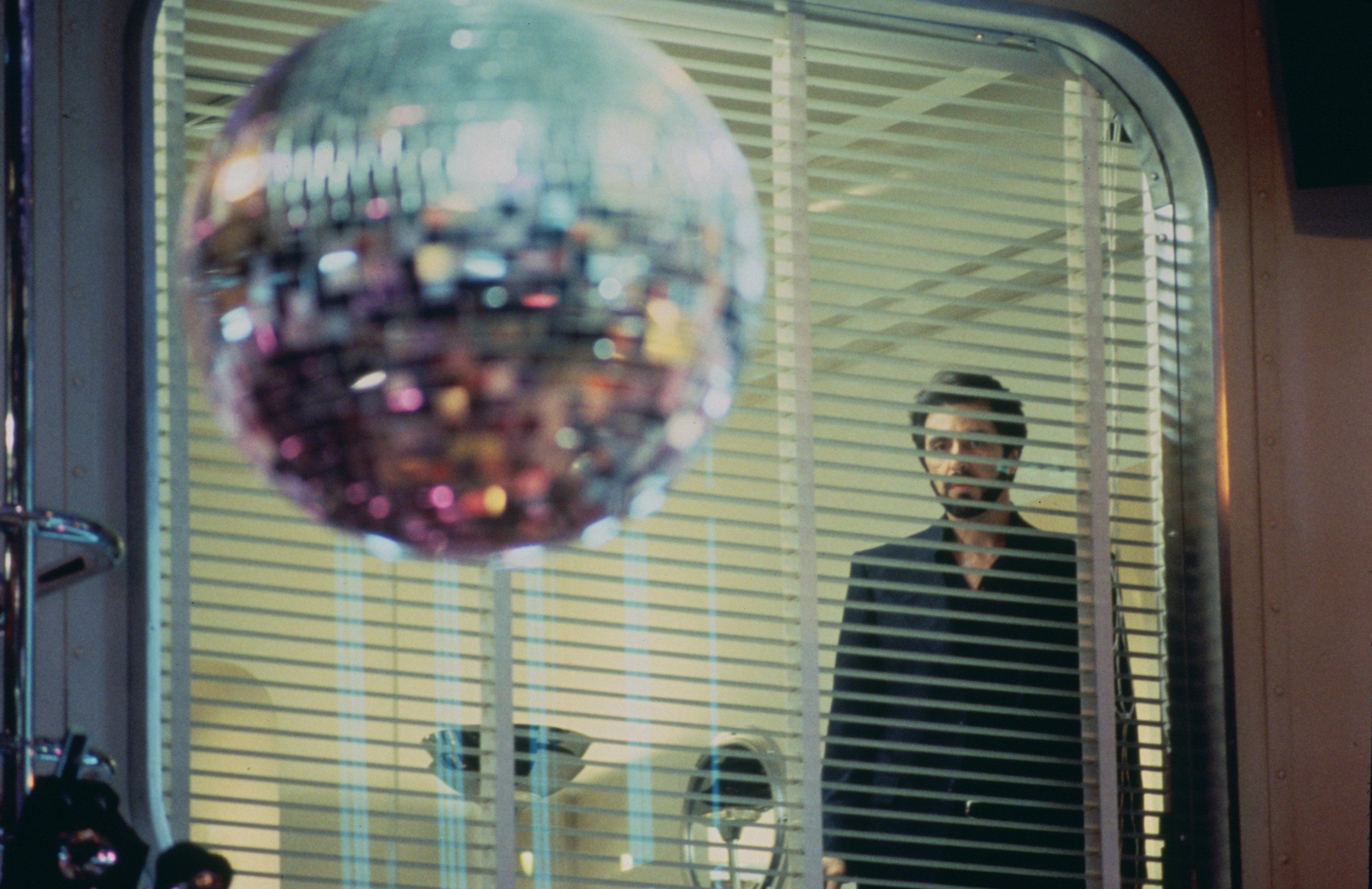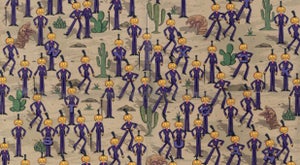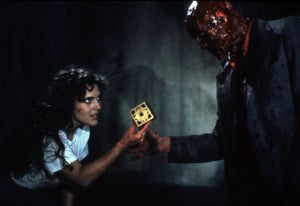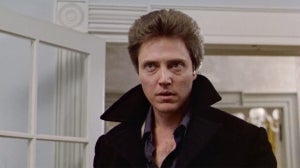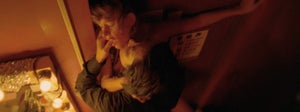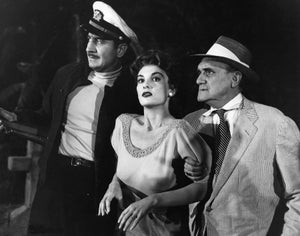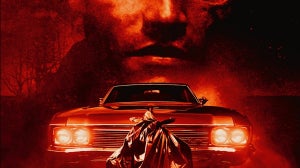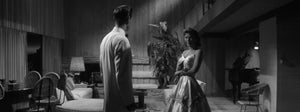
One of the signature stars of the 1970's New Hollywood revolution, Al Pacino is still going strong some fifty years after making his feature debut. There have certainly been ups and downs along the way – he famously withdrew from Hollywood for several years after starring in mega-flop Revolution (1984), and his post-2000 career was littered with too many mediocre thrillers and several well-meant but underwhelming old guy roles. But, just as it seemed he might be on the verge of quietly fading away, Pacino blazed back into life in 2019: first, with his enjoyably juicy cameo in Once Upon a Time...in Hollywood, and then, with his barnstorming (and Oscar-nominated) turn in The Irishman. So, as Arrow prepare to release one of his greatest 90's films, Carlito's Way, we thought we'd take a look back at some of Pacino's more underrated movie roles. Because so many of his most famous parts involve him playing a cop or mobster, it's easy to lose sight of just how versatile the actor can be; hopefully this list might go some way towards redressing that. (Okay, so there is one Pacino gangster included.)
The Panic in Needle Park (1971)
According to Pacino, he turned down eleven films before making his debut as a big-screen leading man in Jerry Schatzberg's unsparing account of New York junkie life, The Panic in Needle Park. (The actor had previously appeared in a small supporting role in the 1969 indie Me, Natalie.) And although many critics were repelled by its deliberately unglamorous depiction of heroin addiction, leading to the film receiving somewhat mixed reviews at the time of its release, he apparently made the right choice: it was seeing Pacino's performance in Panic that prompted Francis Coppola to cast him in The Godfather (1972). It's not hard to see why; as junkie hustler Bobby, he demonstrates the same knack of slipping from callow charm to cold-eyed loathsomeness that distinguished his portrayal of college boy-turned-mobster Michael Corleone. What The Panic in Needle Park gets so right is not merely the studiedly sleazy Manhattan milieu, but the damaged psychology of its characters. We watch Bobby and his girlfriend Helen (Kitty Winn) first fall in love, and then descend into addiction, their mutual habit quickly leading them to commit the most terrible betrayals. And yet they remain together throughout it all, although we're left to decide for ourselves whether that is down to a genuine love for one another, or merely their own helpless co-dependency. Whereas many other druggie films of the period are now something of a tough sit, mistaking verité frankness for dramatic interest, Schatzberg never loses sight of the humanity of his central characters, and his fleet-footed direction helps keep The Panic in Needle Park compelling, no matter how grim the events onscreen get.
https://youtu.be/PhkLHDgVtzs?feature=shared
Scarecrow (1973)
Pacino's second outing with director Jerry Schatzberg proved to be something of a mixed bag for the actor: although the film won the Palme d'Or at the Cannes Film Festival, he clashed with co-star Gene Hackman during filming and later called Scarecrow “the saddest experience of my career.” (In a book of biographical interviews with Pacino, the film barely even rates a mention.) Is this why Scarecrow went largely unseen for so many years? Whatever the reason, the film deserves far better. It tells the story of two feckless drifters (played by Pacino and Hackman) who throw in their lot together and set out on a quest to travel cross-country to Pittsburgh and start a car wash business. From this description, it's fairly obvious that Scarecrow is about as far from high-concept entertainment as it's possible to get, and it's true that those viewers lacking a tolerance for slow-burn character studies had perhaps best look elsewhere. But for the rest of us, Schatzberg's film is both funny and tragic, a gorgeous relic from a period in Hollywood history where movies were allowed to be about protagonists who lived their lives on the margins; people who, no matter how hard they tried to succeed, were almost certainly doomed to fail. Once again, Pacino shows us a man who begins as a wide-eyed idealist, only to gradually fall from grace. (It's interesting to note just how many of his 70's roles depict good-hearted men who come to realise that society is a far more corrupt place than they would wish it to be.) The difference here is that his state of innocence is not simply poisoned, but completely destroyed. Pacino's moral decline in both The Panic in Needle Park and The Godfather is saddening to behold, but when his character's despair causes him to entirely retreat from the world in Scarecrow, it's utterly heartbreaking.
https://youtu.be/0_MKLJWn0P8?feature=shared
...And Justice for All (1979)
One of the prevailing trends of the New Hollywood cinema was a series of films that set out to satirise the systemic failures of America's great institutions: the military in M.A.S.H. (1970), the health service in The Hospital (1971), and the media in Network (1975). Following on their heels, Norman Jewison's ...And Justice for All aimed to do much the same for the American criminal justice system. Here, Pacino plays yet another principled idealist, a defence lawyer angrily railing against the bureaucratic incompetency and corruption he encounters every day in the courtrooms where he plies his trade. And once more, he is doomed to fail, finding himself helpless to prevent innocent men from being sent to jail while the rich and powerful go free. (In the latter category, John Forsythe plays a sadistic judge whom Pacino is eventually blackmailed into defending; he is so supremely hateful in his sheer sociopathic entitlement that it's difficult not to think of Donald Trump as you watch his performance.) ...And Justice for All may not quite match the achievements of the other films I mentioned; it can't always successfully negotiate its sometimes-abrupt tonal shifts between broad comedy and tragedy, and it suffers horribly from one of composer Dave Grusin's typically godawful lounge jazz scores. But while it may lack the no-holds-barred savagery displayed in movies like M.A.S.H. and Network, it also possesses a wounded melancholy that is mostly absent from those works. Robert Altman and Paddy Chayefsky want you to cackle madly as you sit back and watch these respected institutions collapse and fail; Norman Jewison wants you to mourn the disintegration of a system that could have, should have, stood for something better.
https://youtu.be/ZQcqSr83EuU?feature=shared
Carlito's Way (1992)
Is Carlito's Way still underrated? It certainly was at the time of its release, when it elicited some positive reviews but little in the way of box-office heat. Perhaps audiences expected a redux version of Scarface (1983) from this re-teaming of Pacino and director Brian De Palma, only to discover that what they had paid for was not more cocaine-fuelled debauchery and gibberingly quotable catchphrases; instead, the film is a taut but often downbeat noir about a desperate man trying vainly to escape his criminal background (rather than gleefully embracing it, a la Tony Montana). By now entering a slightly wearied-looking middle age, Pacino had shifted from playing idealists and innocents who find themselves unable to transcend the overwhelming inequities of the world, to protagonists who had already been brought low by their own corruption, and were struggling to find their way back to the light – although frequently with just as little success. (Of his generation of actors, perhaps only Warren Beatty has specialised in playing heroes as inexorably doomed to fail as much as Pacino.) Still, for all of its elegiac themes, Carlito's Way is also a terrifically exciting thriller, boasting committed performances from Pacino and Sean Penn (as a hilariously sleazy lawyer), as well several tour de force scenes of directorial virtuosity that rank up there with the best of De Palma's set-pieces. It may lack the instant meme-ability and violent balls-to-the-wall excess of Scarface, but you know what? It's a better movie.
https://youtu.be/4fF8WR2Gj7g?feature=shared
People I Know (2002)
As was already mentioned, it became harder and harder to be a Pacino fan in recent years, at least until his 2019 comeback. Much like his contemporary Robert De Niro, as the actor slowly aged out of the sorts of parts audiences had grown accustomed to seeing him play, he began to seem rather lost, appearing in too many movies that were simply unworthy of his talents. But that said, there are one or two small gems nestled in amongst all the DTV dross. Dan Algrent's People I Know may have suffered the ignominy of premiering as an in-flight film on Concorde, but it's a worthwhile, sinister little noir that showcases another of Pacino's latterday roles as a debased man finally attempting to do the right thing. He plays Eli Wurman, a one-time big-shot press agent whose time has long since passed, and is now in danger of losing the single star name client he has left. Strung out on pills, exhausted by the strain of trying to organise a benefit event, Wurman agrees to chaperone a junkie model/actress for the evening, only to later pass out in her hotel room. When he awakes the following morning, the woman is dead. Did she OD? Was she murdered? The agent isn't sure, and for much of the film hardly even seems to care, so preoccupied is he by his looming tsunami of professional disasters. Perhaps People I Know might have been more successful with audiences if it had played out as more of a straight thriller, but for much of its runtime, it allows Wurman's woozy solipsism to dictate its narrative focus; he doesn't much concern himself with the girl's death, so neither does the film. It's only when the agent is finally put in a position where he is forced to care that People I Know shifts gears and becomes a disquieting study in paranoia and political corruption. The film isn't perfect; it could have used a surer directorial hand to really amp up Pacino's mounting disorientation and anxiety, but it's an interesting, modest but quirky B-movie that gives the actor something more to play than the same old tired tough guy moves.

Related Articles

